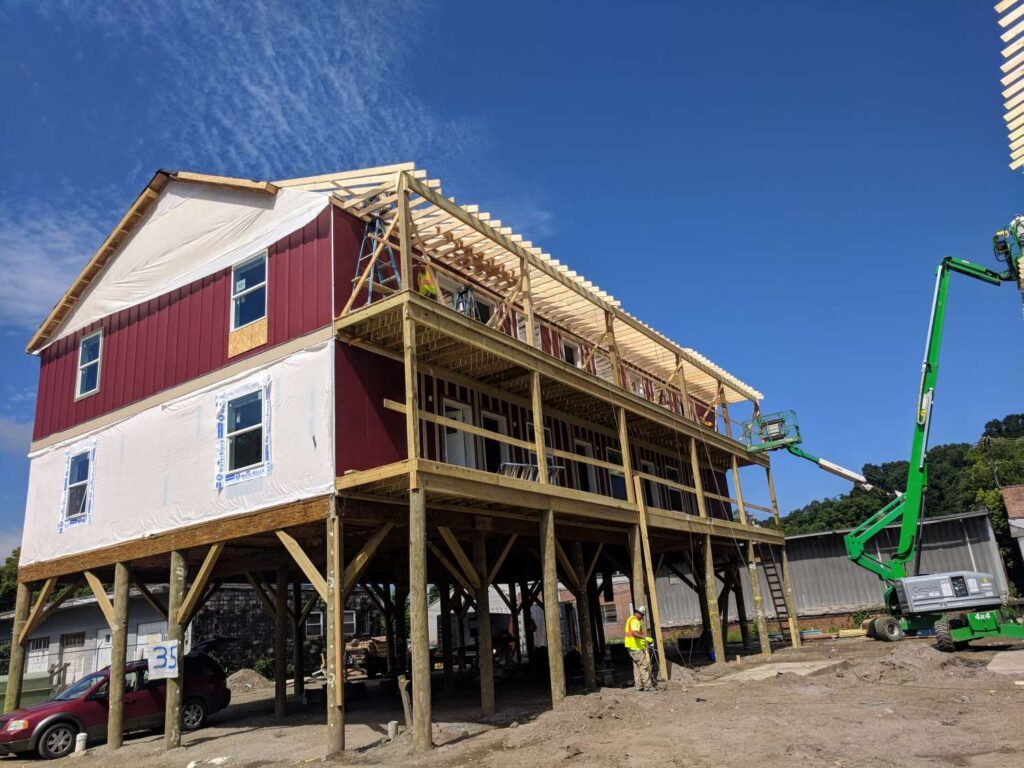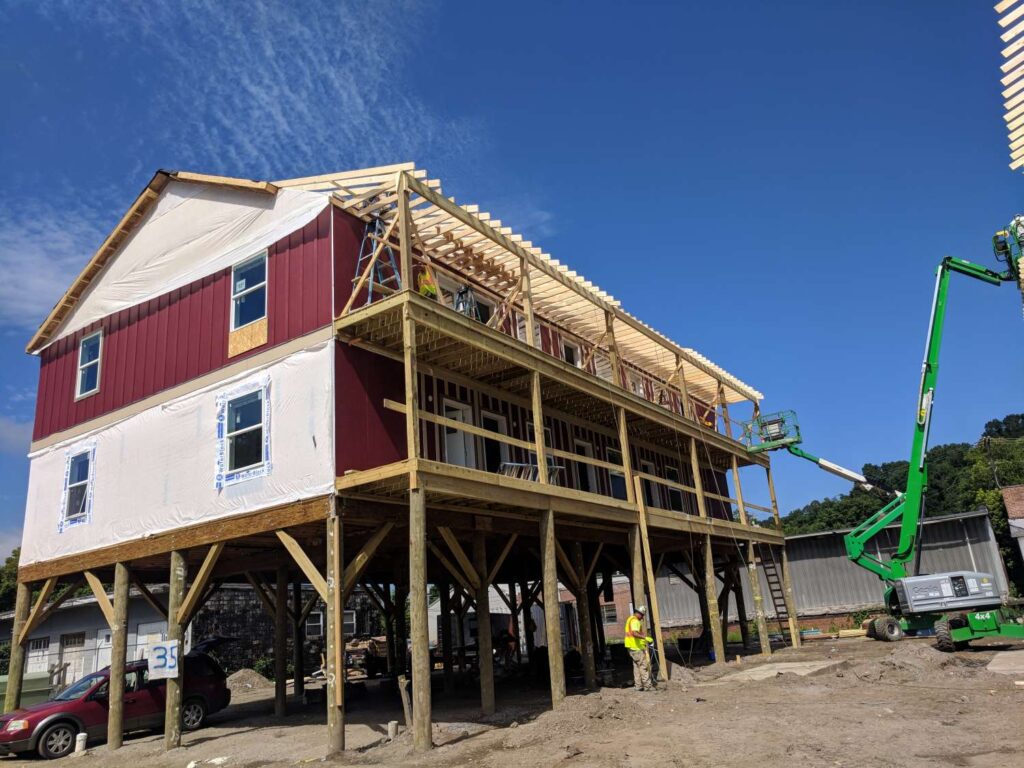“Affordable housing” may seem an oxymoron to many people in Asheville and Buncombe County. And for good reason.
Although there is plenty of residential development happening in the area, most of the new rental housing developed in Buncombe County over the past few years has been in high-end market-rate units, while only a couple of properties affordable to low-income households were developed during this time.
Meanwhile, according to recent market studies, new affordable housing is being gobbled up quickly, with an occupancy rate consistently holding at 100 percent, and more than a thousand families on waiting lists.
The root of the problem
Market-rate rents have been rising in Asheville and Buncombe County by 4 percent annually, although there are some signs that market-rate apartment development may be slowing. The median rent for a two-bedroom, two-bath apartment – not including utilities – was almost $1,150 in 2016. The median single-family home value is $273,000, according to Zillow, which is a 6.5 percent increase from last year, and up dramatically from the low of $162,000 in 2012.
The most common definition of affordability is that a household pays no more than 30 to 35 percent of its gross income on housing. Nearly half of all renter households in Buncombe County spend more than 30 percent of their gross income for their housing costs, and a quarter of all renter households in Buncombe County spend more than 50 percent of their gross income on housing.
There are many factors contributing to this income-to-housing cost mismatch.
Asheville’s wages are lower and the cost of living is higher than most other North Carolina cities.
The Asheville area’s many assets have made it a highly desirable place to move to, and the demand for housing has exceeded the supply.
Although it appears that production is high, Bowen National Research predicted that the Asheville metro area would need more than 6,000 new units affordable to households earning 120 percent of median income or less by 2020 in order to meet demand. It is clear that this level of production is not being met.
The area’s topography does not support the large subdivision-style developments that would bring high-volume developers to the region.
Finally, the loss of skilled construction workers during the recession has also constrained the creation of new housing.
The response of the community
These trends have informed the response to address affordable housing from local governments, including the City of Asheville as well as Buncombe County.

The city’s response has been robust. With a strong intent to create more public-private partnerships to increase affordable housing supply and preserve existing affordable housing, the city has upped the ante of its investments in affordable housing.
City voters overwhelmingly passed a $25 million general obligation bond for affordable housing in the fall of 2016. The Asheville City Council has apportioned $10 million to direct investments in affordable housing through its Housing Trust Fund, and $15 million into repurposing strategic city-owned property for affordable housing development.
The city has also made a $4 million commitment to the redevelopment of the Asheville Housing Authority’s Lee Walker Heights community, with a plan to more than double the number of affordable apartments there from 98 to 212.
The city has additionally incentivized private developers to make a portion of their otherwise market-rate developments affordable through grants, density bonuses, and other regulatory relief. Asheville is also encouraging homeowners to add “Accessory Dwelling Units” to their existing homes.
Through these programs and others, the city hopes to help create 2,800 more affordable units by 2022.
At the same time, Buncombe County is using its Affordable Housing Services program to directly support affordable housing development through an annual awards process that funds nonprofit organizations developing affordable housing. Buncombe County also supports affordable development through its Fee Rebate program.
The reality of the issue
These programs, while necessary, will not solve the issues of affordability in western North Carolina.
National trends such as “the Missing Middle,” which promotes appropriate in-fill development at a neighborhood scale, the transformation of public housing through the Rental Assistance Demonstration program, and the emergence of a “YIMBY” movement (instead of NIMBY) all show promise here.
Programs and approaches that lower families’ residential operating costs through smart energy efficient construction and alternative energy are equally important, as are transportation alternatives and a focus on housing that is close to jobs, schools and services.
Recognizing that our entire community’s quality of life hinges on ensuring diverse and inclusive housing choices is a key value we need to embrace.
Jeff Staudinger is recognized as a leading proponent of local affordable housing finance policy and strategy. He worked as Asheville’s community development director, and as the assistant director of its Community and Economic Development Department. He was recognized by the North Carolina Housing Coalition as its Affordable Housing Professional of the Year in 2016. Jeff offers consulting services to local governments, nonprofits and housing developers.
You can also view this article as it was originally published on page 61 of the 2018-2019 edition of the directory.


